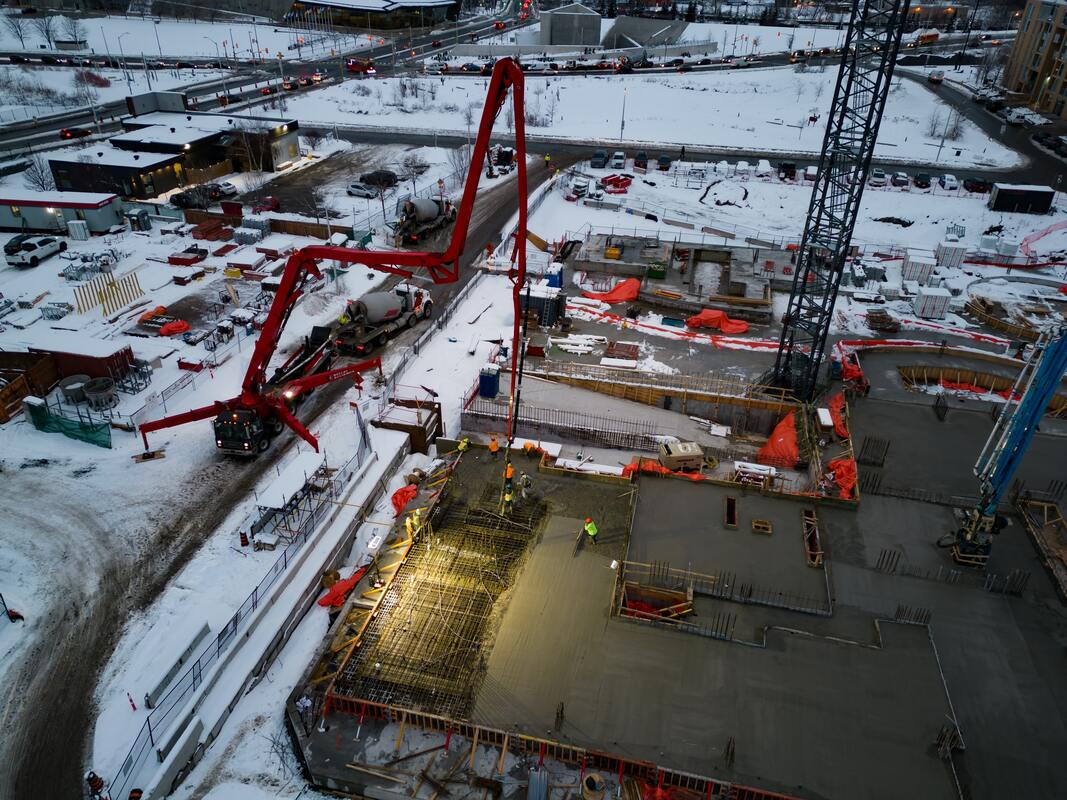Embracing Innovation: A Strategic Imperative for Construction Leaders
In an industry as time-honored and steadfast as construction, change has often been a slow and arduous process. Yet, the advent and steady infusion of technology have ushered in a wave of transformation, forcing industry pioneers to adapt and innovate. Construction executives, once comfortably ensconced in the familiarity of traditional methods, now find themselves steering through a dynamic landscape defined by constant innovation. This evolution isn't merely about the adoption of new tools or the perfunctory replacement of old with the new. It is, in fact, an overarching strategic shift that requires a proactive and forward-thinking approach to stay competitive, efficient, and sustainable in an increasingly globalized domain. One such visionary is Ted Vitale. Based out of Chapel Hill, North Carolina, Ted is an accomplished construction executive with an impressive track record spanning over 25 years in the industry. His expertise and leadership have been instrumental in providing top-tier construction and construction management services to a wide-ranging clientele, including developers of designer retail, department stores, restaurants, hospitality developers, as well as those in retail and the commercial aviation sector. The journey ahead in this digitized era of construction is both exciting and challenging, and it is industry leaders like Ted Vitale who are setting the pace for this new era.
The Tech-Driven Evolution in Construction
The construction sector, historically conservative in embracing technological advancements, has seen a rapid influx of innovations reshaping its fundamental practices. From Building Information Modeling (BIM) to drones, augmented reality (AR), and Internet of Things (IoT), these technologies have unlocked new dimensions in project planning, execution, and management. Executives are recognizing the imperative of integrating these tools to streamline workflows, enhance precision, and deliver projects with unprecedented efficiency.
A concept from the realm of science fiction, automation, has now entrenched itself at the heart of construction processes with a profound impact on operations. The advent of robotics, machinery imbued with artificial intelligence, and autonomous vehicles is transforming the landscape of construction, bringing about a revolution in tasks once deemed mundane and repetitive. These technological advancements are not just reducing the time taken for project completion significantly but also minimizing errors that come with human involvement. Also, they promise to elevate the safety standards in what is considered one of the most hazardous industries. Visionary leaders in the construction industry, such as Ted Vitale NJ, are exploiting these cutting-edge technologies to maximize resource allocation efficiency and propel productivity at different stages of construction projects. They are envisioning and shaping the future of construction, ensuring it is more efficient, safer, and cost-effective.
Data has emerged as a pivotal asset in the construction domain. Executives are leveraging advanced analytics to extract meaningful insights from project data. By harnessing analytics tools, they gain real-time visibility into project progress, identify potential bottlenecks, and make data-driven decisions to mitigate risks effectively. This proactive approach allows for agility in adapting to changing project dynamics, ultimately ensuring timely delivery and cost-effectiveness.
Overcoming Challenges and Cultivating Innovation
While the benefits of technological integration in construction are undeniable, navigating this shift isn’t devoid of challenges. Embracing innovation requires a cultural shift within organizations. Resistance to change, legacy systems, and a lack of technological expertise often pose hurdles. However, forward-thinking executives understand the importance of fostering a culture that values innovation. They invest in upskilling their workforce, promoting a mindset of adaptability, and creating an environment conducive to experimentation and learning.
In the rapidly-evolving landscape of the construction industry, embracing innovation becomes an indispensable strategy. The industry is now subjected to an unprecedented wave of technological advancements that are shaping the way construction projects are planned, executed, and delivered. However, with the adoption of these new technologies comes the complexity of interoperability, a challenge that construction leaders, like Ted Vitale New Jersey, are increasingly focused on. The task is to effectively integrate these diverse tools in a manner that optimizes their synergies, thereby maximizing the overall productivity and efficiency of construction processes. This integration not only demands a thorough understanding of each tool but also a holistic overview of how they can work together. Achieving this seamless integration is not a siloed effort; it necessitates active collaboration among all stakeholders, standardization of processes across the board, and open communication channels. These factors play an instrumental role in overcoming interoperability challenges and ensuring a smooth transition towards a technology-enabled future in the construction industry.
The Imperative for Continuous Adaptation
Innovation in construction isn’t a one-time event; it's an ongoing journey. Executives recognize the need for continuous adaptation and evolution. The landscape of technological advancements is dynamic, and staying ahead requires a commitment to exploring emerging technologies. Experimentation with new tools, piloting innovative solutions, and staying attuned to industry trends are essential strategies adopted by forward-thinking construction leaders.
The journey towards embracing innovation isn’t just about technology; it’s about redefining the way construction projects are conceptualized, executed, and delivered. It’s about embracing a mindset that values agility, efficiency, and sustainability. By weaving innovation into the fabric of their operations, construction executives are not only future-proofing their businesses but also shaping an industry that’s poised for transformative growth.
In the rapidly changing dynamics of the construction industry, the importance of technology cannot be overstated. Executives like Ted Vitale, who comprehend the magnitude of this evolution and proactively adopt innovative solutions, are setting a new standard for the industry. With over 25 years of rich experience, Ted Vitale's foresight has allowed him to lead the field into a future where efficiency, sustainability, and overall excellence integrate seamlessly. This harmonious convergence is not just a vision, but a reality in progress, led by the strategic and adaptable leadership of construction executives like Ted Vitale. This journey of transformation, steered by technology and guided by industry veterans, is framing the future of construction - a future that is more efficient, sustainable and exceptional.





Comments